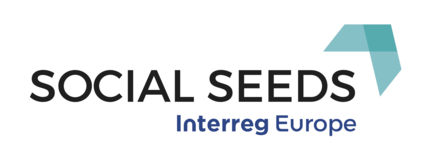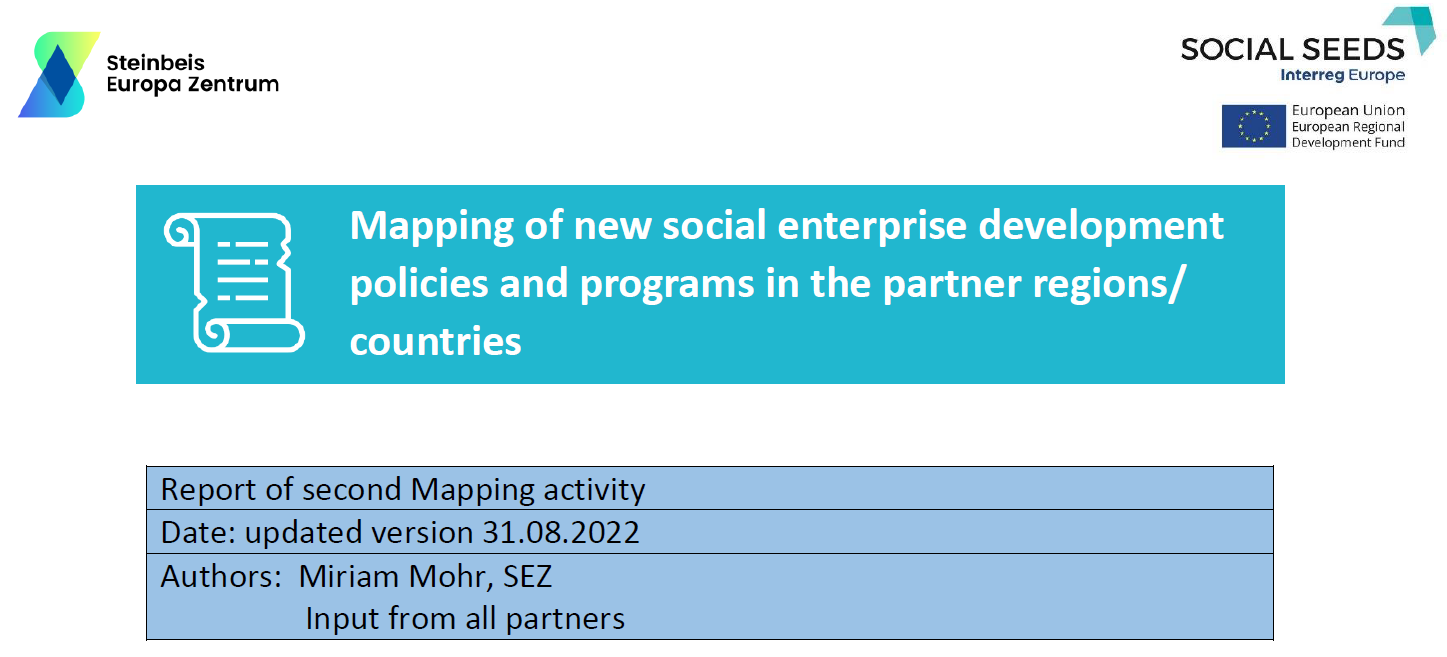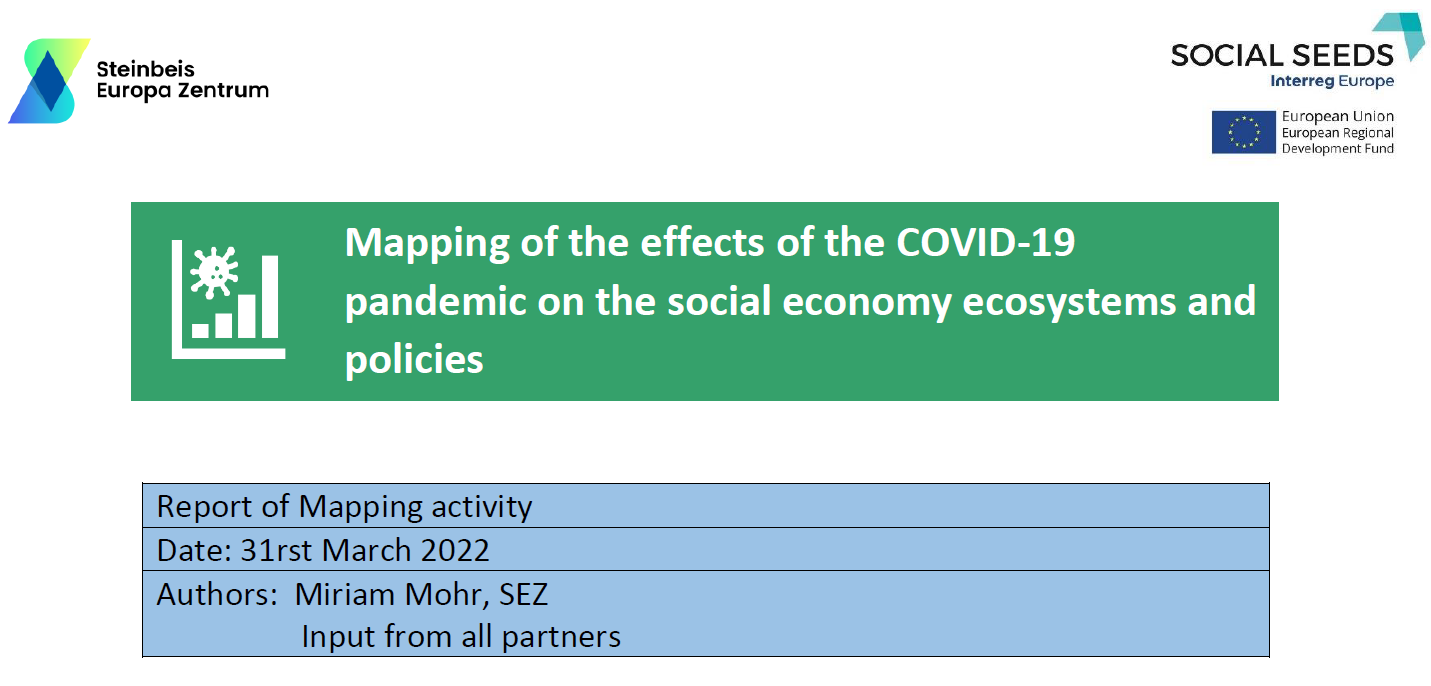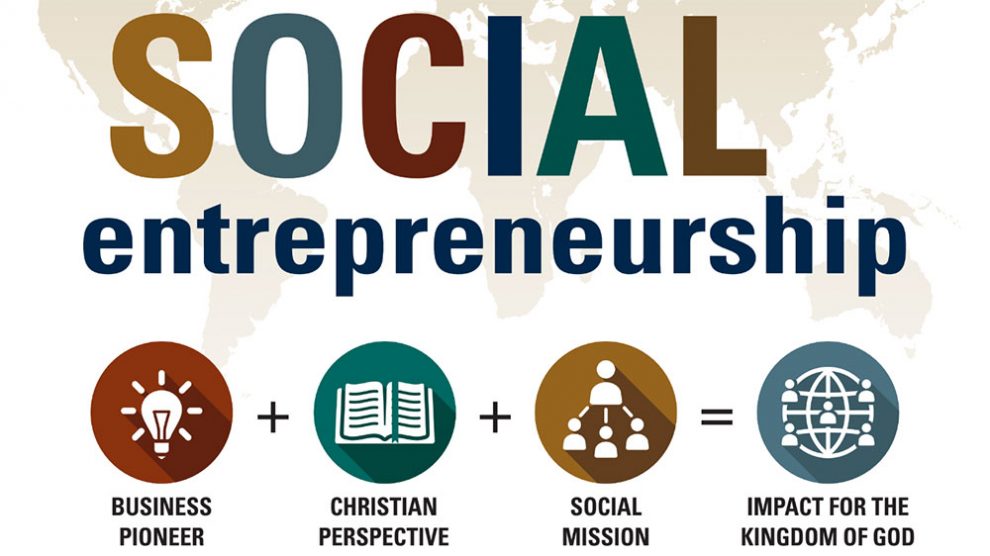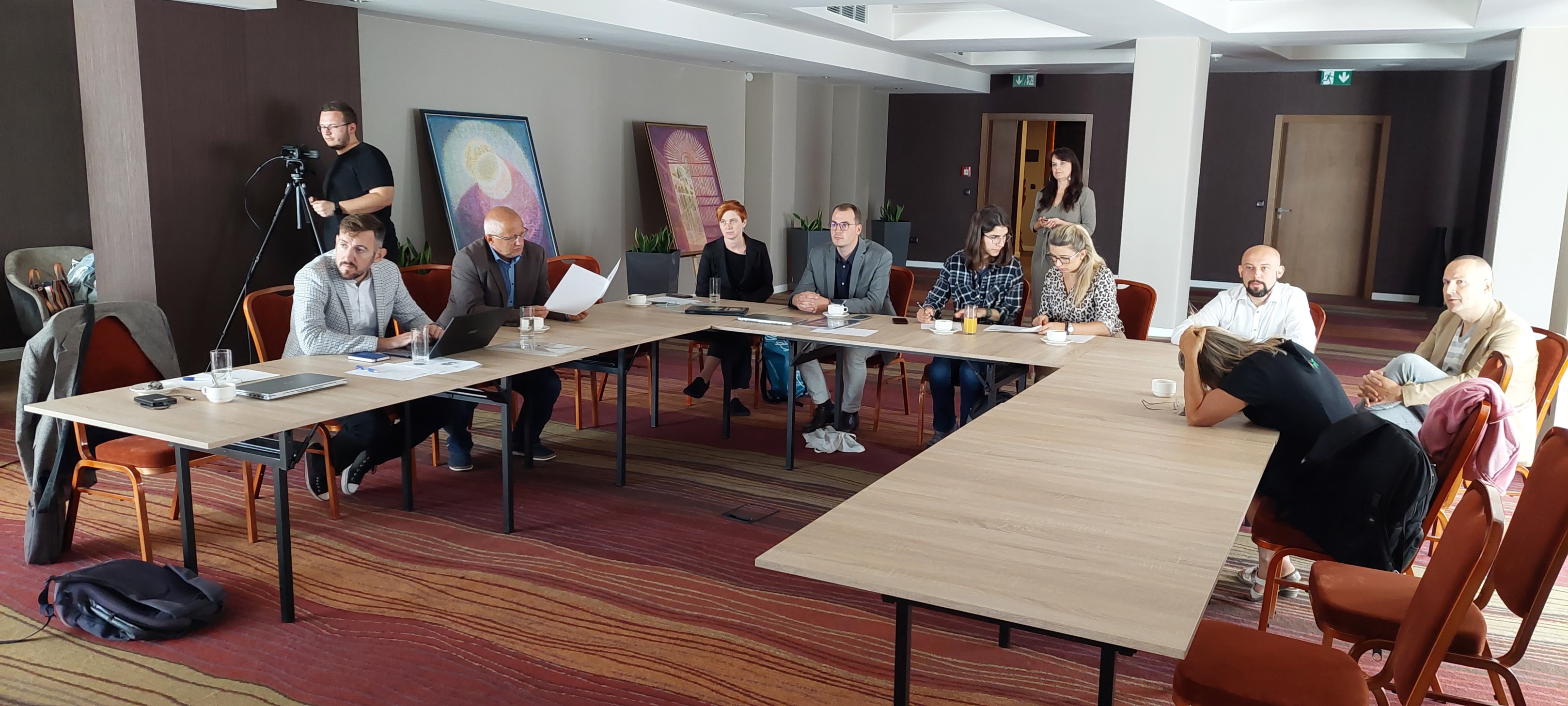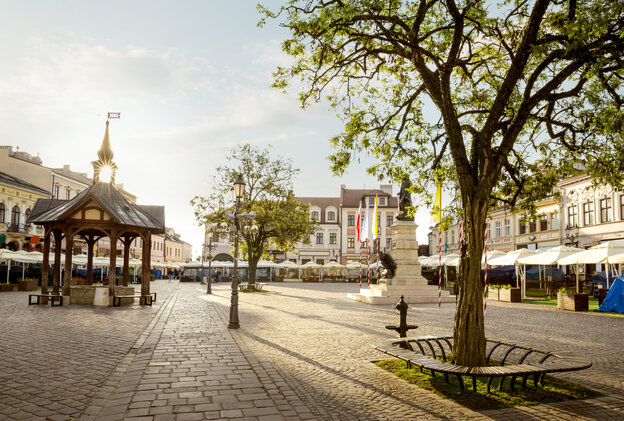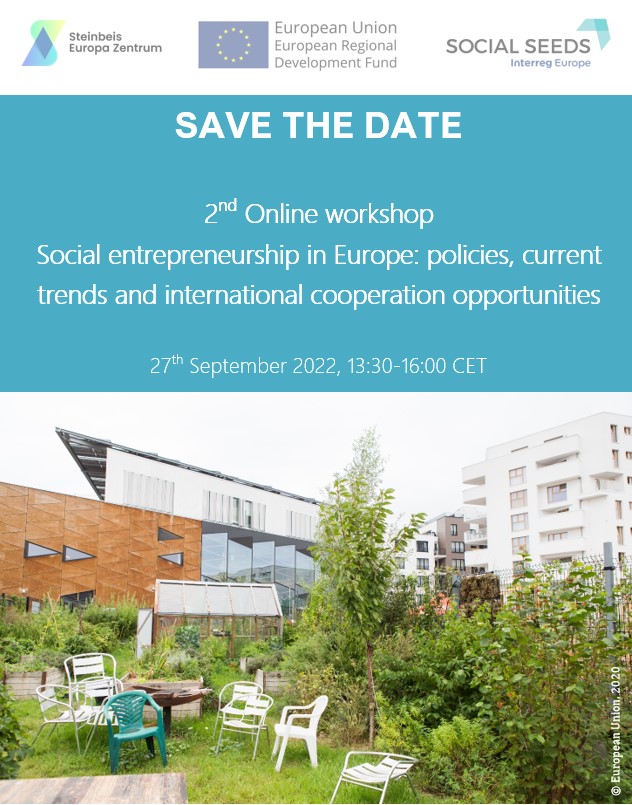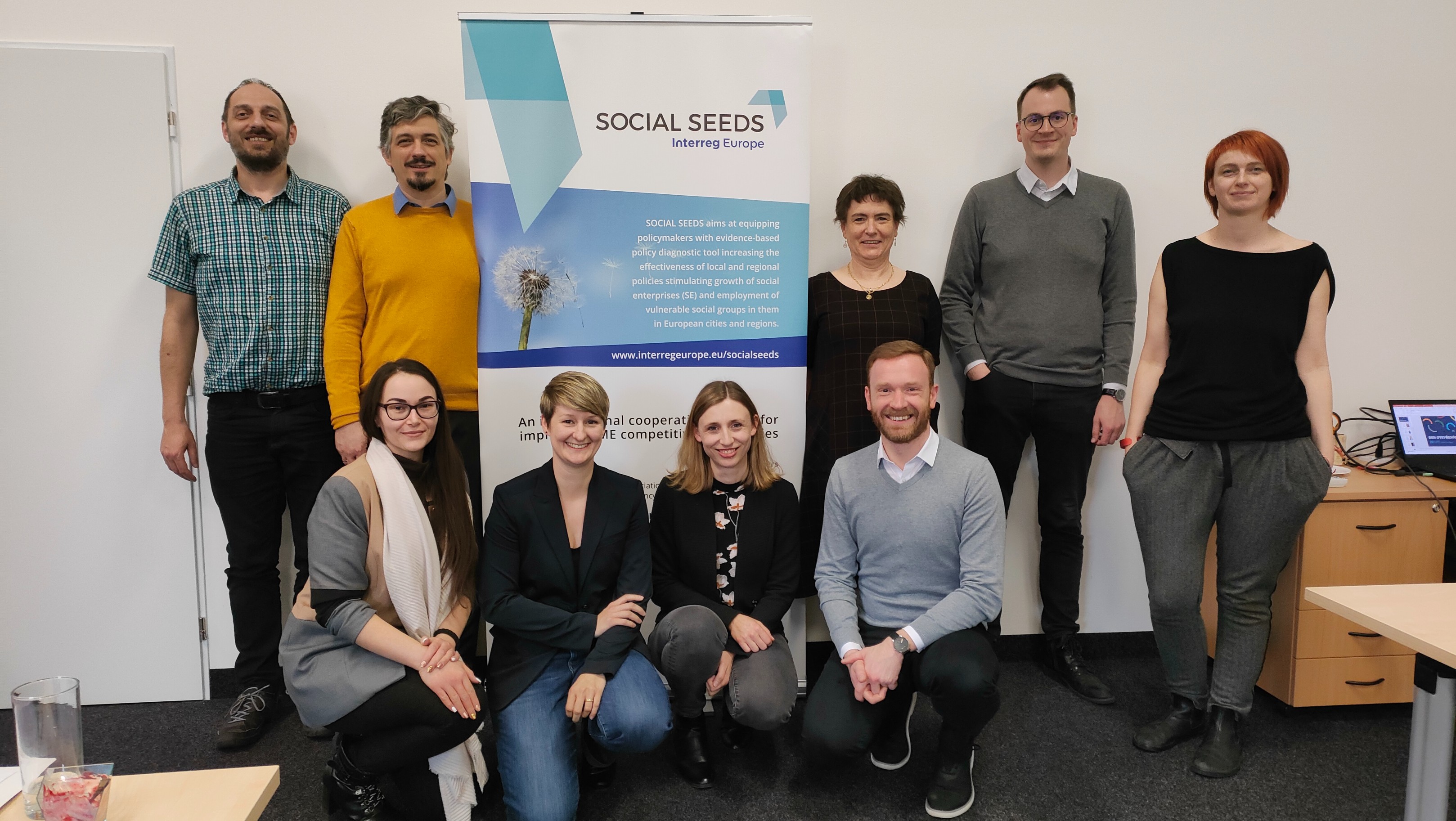The first transnational workshop of the Social SEEDS partnership was organised on the 26th of January, 2022 as an integrated program of the DepoSIt project’s online closing event. The workshop was dedicated to sharing the results as well as supporting the execution of the mapping activities of the extension period of SEEDS
The first transnational workshop on the results of the Social SEEDS mapping activities was organized in the realm of the Social Innovation Conference (Final Conference of DepoSIt project) on 26th January 2022. This conference attracted over 80 participants from all over Europe in a virtual setting and covered different topics like social innovation, social economy, policy experimentation, SME support and entrepreneurial ecosystems. The Social Innovation Conference offered a good opportunity for the Social SEEDS consortium to create synergies with other EU-funded projects in the field of social innovation and to present the first results of the additional activities to a wider audience.
The Social Seeds consortium was asked to offer a 60 minutes session in a workshop format during the conference and to present the results of the session in the following outcomes plenary session. The objectives of the workshop were to present the preliminary results of Mapping 1 to a wider audience and to receive inputs and feedback from participants on the situation of the social economy sector during the COVID-19 pandemic. The workshop was specifically designed in an interactive format so that participants with all knowledge levels on social enterprises could learn and participate in the discussion by using interactive tools like Zoom breakout rooms, Mentimeter survey and virtual whiteboard (Mural).
The workshop started with welcoming words and a short introduction to the Social SEEDS project by István Tamás Szenttamási.
Then a quick Mentimeter survey took place in order to draft the preliminary knowledge and concepts of the audience about social enterprises and social entrepreneurship.
After the interactive icebreaker, Miriam Mohr from Steinbeis Europa Zentrum presented the first results of the mapping activities implemented by Social SEEDS partners regarding the impacts of the COVID-19 pandemic on the social enterprise ecosystems and policies in the partner countries. Ms Mohr highlighted that in theory, social enterprises could benefit from most of the public crisis mitigation measures. However, the mapping showed that there were many practical hurdles preventing social enterprises to make use of the programmes in place.
The presentation of mapping results was followed by small group discussions in virtual breakout rooms. Participants had been addressed with questions regarding what were the biggest problems or hurdles resulting from the COVID-19 pandemic in their countries, for social enterprises on the one, and for SMEs in general on the other hand.
Using virtual whiteboards and post-its, the participants reported unclear conditions and chaotic government support in several countries, which affected SMEs in general as well as social enterprises. Other problems mentioned were cash flow problems, unreliable supply chains as well as the need for digitization processes.
Problems specifically affecting social enterprises were funding uncertainty, a decrease in demand for products and services as well as the difficulties of keeping their employees.
Generally, participants observed that social enterprises faced the same problems as SMEs, while the social economy sector had to endure additional difficulties.
Finally, participants were asked to evaluate the effectiveness of the COVID relief measures in their countries, using a voting scale on the whiteboard. Overall, the participants thought the COVID relief measures for SMEs were sufficiently effective in general, while they were rather ineffective for social enterprises. Several examples were shared by the attendees like the purchasing mechanism in Poland, a special tool to facilitate purchases made by public institutions so they could support social entities, and a grant programme for social enterprises from the AVAST foundation in the Czech Republic. Other examples were a cross-border working group in Italy and Austria to support business ideas to counteract COVID-related issues and the resilience programme of the BADUR foundation in Hungary.
All in all, the participants’ testimonials and examples supported and effectively complemented the first findings of Mapping 1 with regards to the impact of the pandemic and the effectiveness of COVID relief measures.
